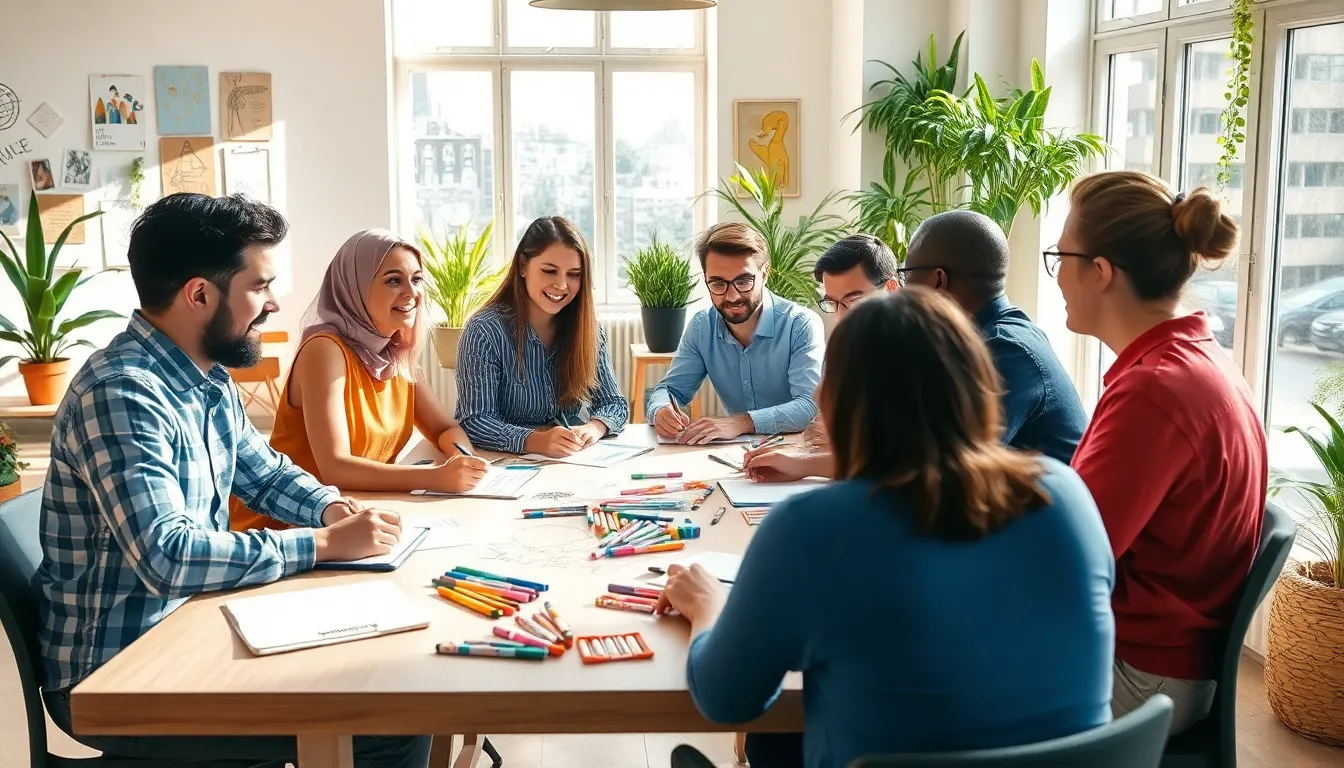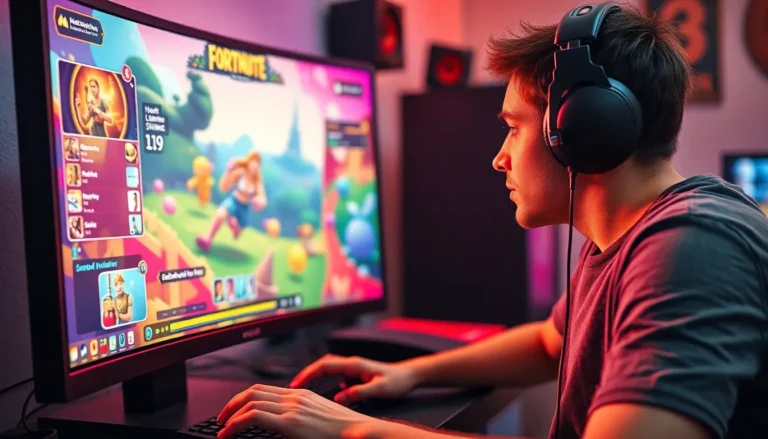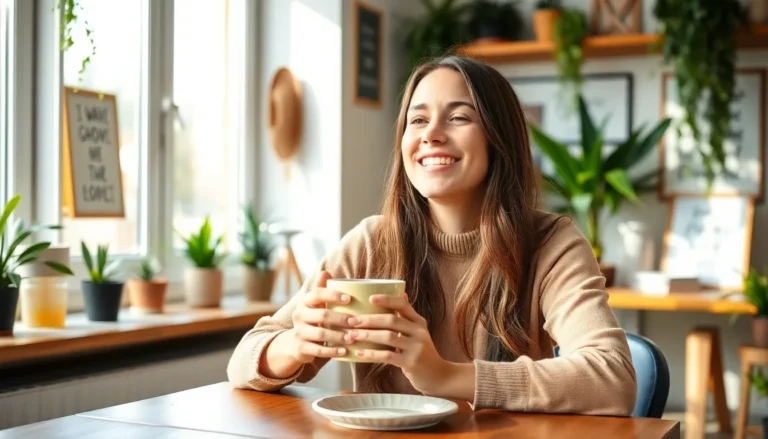Creativity isn’t just for artists; it’s a superpower everyone can tap into. Imagine waking up each day with a spark of inspiration, ready to tackle challenges like a superhero in a cape (or pajamas, no judgment here). The secret? Developing a creative habit that transforms those fleeting moments of brilliance into a reliable routine.
Table of Contents
ToggleUnderstanding The Creative Habit
Creativity transcends the realm of art and can be embraced by anyone. Developing a creative habit establishes the foundation for consistent inspiration and problem-solving.
Definition of Creativity
Creativity encompasses the ability to generate new ideas, solve problems, and express thoughts in innovative ways. It involves recognizing patterns, making connections, and approaching challenges with a fresh perspective. Creativity isn’t restricted to artistic endeavors; it manifests in everyday decision-making and analytical processes, enabling individuals to navigate complexities effectively.
Importance of Creativity in Daily Life
Creativity enhances personal and professional experiences by fostering innovation and adaptability. It contributes to improved problem-solving skills, enabling individuals to tackle obstacles with confidence. Engaging in creative activities reduces stress and promotes mental well-being, creating a balanced lifestyle. Additionally, creativity encourages collaboration and communication, forging stronger relationships in both personal and work settings.
Building The Creative Habit

Building a creative habit involves establishing routines that facilitate creativity in everyday life.
Daily Practices to Foster Creativity
Engaging in daily practices boosts creativity. Setting aside time for activities like journaling, sketching, or brainstorming helps cultivate new ideas. Integrating short breaks into the workday encourages fresh perspectives. Connecting with diverse groups enhances collaborative creativity. Exploring new environments, such as parks or cafes, stimulates inspiration. Developing a habit of reading widely influences new thought patterns. Including mindfulness practices, like meditation, sharpens focus and enhances creativity.
Overcoming Creative Blocks
Overcoming creative blocks requires strategic approaches. Identifying the source of the block can lead to effective solutions. Taking breaks or altering routines often refreshes the mind. Embracing imperfection allows for freer expression of ideas, reducing self-imposed pressure. Setting small, achievable goals promotes a sense of progress. Discussing ideas with peers generates new insights and can spark creativity. Utilizing creative prompts, such as writing exercises or visual challenges, can also ignite inspiration.
The Science Behind The Creative Habit
Understanding the science behind creativity reveals its complex nature, rooted in both neurological and psychological aspects.
Neurological Aspects of Creativity
Creativity involves various brain regions, including the prefrontal cortex, which manages complex thinking and decision-making. Studies show increased activity in this area during creative tasks, suggesting that focused attention can unlock innovative ideas. The default mode network, which activates during daydreaming, also plays a crucial role by enabling spontaneous thought and idea generation. Neurotransmitters, like dopamine, influence motivation and idea exploration, making creativity more accessible. Engaging in creative activities fosters neural connections, enhancing cognitive flexibility and problem-solving abilities.
Psychological Benefits of Creativity
Creativity contributes significantly to psychological well-being. Engaging in creative practices reduces stress, fostering relaxation and improving mood by promoting the release of endorphins. Creativity encourages personal expression, allowing individuals to articulate feelings and thoughts. This expression builds resilience and aids in coping with challenges. Regular creative outlets also enhance self-esteem through the development of skills and accomplishments. Participating in group creative activities strengthens social bonds, promoting collaboration and enhancing interpersonal relationships. Ultimately, creativity serves as a powerful tool for emotional regulation and personal growth.
Cultivating Creativity in Different Areas
Creativity thrives in various domains, enhancing skills and effectiveness across fields.
The Creative Habit in Arts
Creative habits in the arts involve regular practice and exploration. Artists benefit from daily activities like drawing, painting, or writing to boost their creative output. Dedicating time for inspiration, such as visiting galleries or reading literature, fuels innovation. Engaging with different artistic mediums fosters cross-disciplinary skills, allowing artists to express ideas uniquely. Embracing feedback and critique can also refine techniques and result in fresh perspectives.
The Creative Habit in Business
Creative habits in business drive innovation and adaptability. Professionals can cultivate creativity by brainstorming sessions and collaborative projects. Regularly setting aside time for ideation, like weekly creative meetings, encourages the flow of new ideas. Encouraging diverse team compositions enhances varied viewpoints. Learning from competitors and adapting successful practices can lead to innovative solutions and strategies. Building an open culture that embraces risk-taking can significantly enhance creative exploration.
The Creative Habit in Problem-Solving
Creative habits in problem-solving enhance critical thinking and flexibility. Adopting techniques like mind mapping or design thinking allows individuals to approach challenges from various angles. Actively identifying roadblocks and consistently reframing the problem cultivates an innovative mindset. Regularly seeking input from others fosters collaboration and sparks new solutions. Embracing mistakes as learning opportunities can lead to breakthrough ideas and more effective resolutions.
Embracing creativity as a daily practice can transform both personal and professional lives. By fostering a creative habit individuals can unlock new ideas and approaches that enhance problem-solving and innovation.
Integrating simple routines and engaging in diverse activities not only nurtures creativity but also promotes mental well-being. Overcoming creative blocks becomes easier with strategic approaches that encourage exploration and collaboration.
Ultimately, cultivating creativity is about making it a priority in everyday life. This commitment can lead to richer experiences and stronger connections, proving that creativity is indeed a vital skill for everyone.








